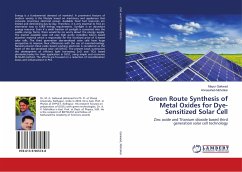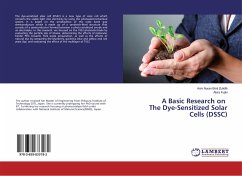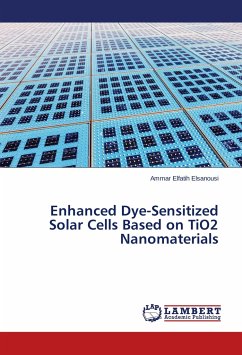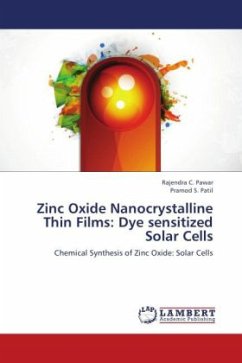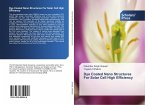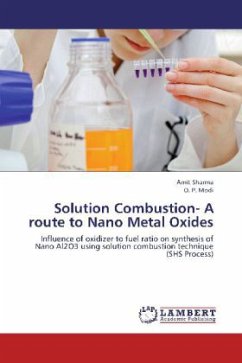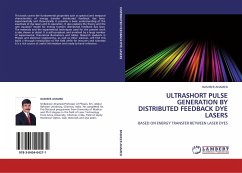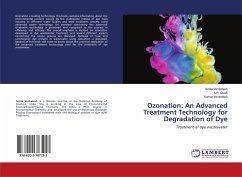Energy is a fundamental demand of mankind. A prominent feature of modern society is the lifestyle based on machinery and appliances that consume enormous electrical power. Available fossil fuel resources are limited and diminishing day by day. Therefore, it is very essential to find an alternative way to fulfill energy requirements. Sunlight is an abundant energy resource. Even if a small fraction of sunlight is converted into the usable energy forms, there would be no worry about the energy supply. The market available solar cell uses high purity crystalline Silicon based absorber material which is responsible for the increased price of Si-based solar cells. The third generation dye-sensitized solar cells have huge prospective to improve their efficiencies with the use of nanotechnology. Nanostructured metal oxide based working electrode is considered as the heart of the dye-sensitized solar cell (DSSC). The present book summarizes the development of efficient light harvesting ZnO and TiO2 based photoelectrodes for their application in DSSC, using simple and economic M-SILAR method. The efforts are focused on a reduction of recombination losses and enhancement in PCE.
Bitte wählen Sie Ihr Anliegen aus.
Rechnungen
Retourenschein anfordern
Bestellstatus
Storno

